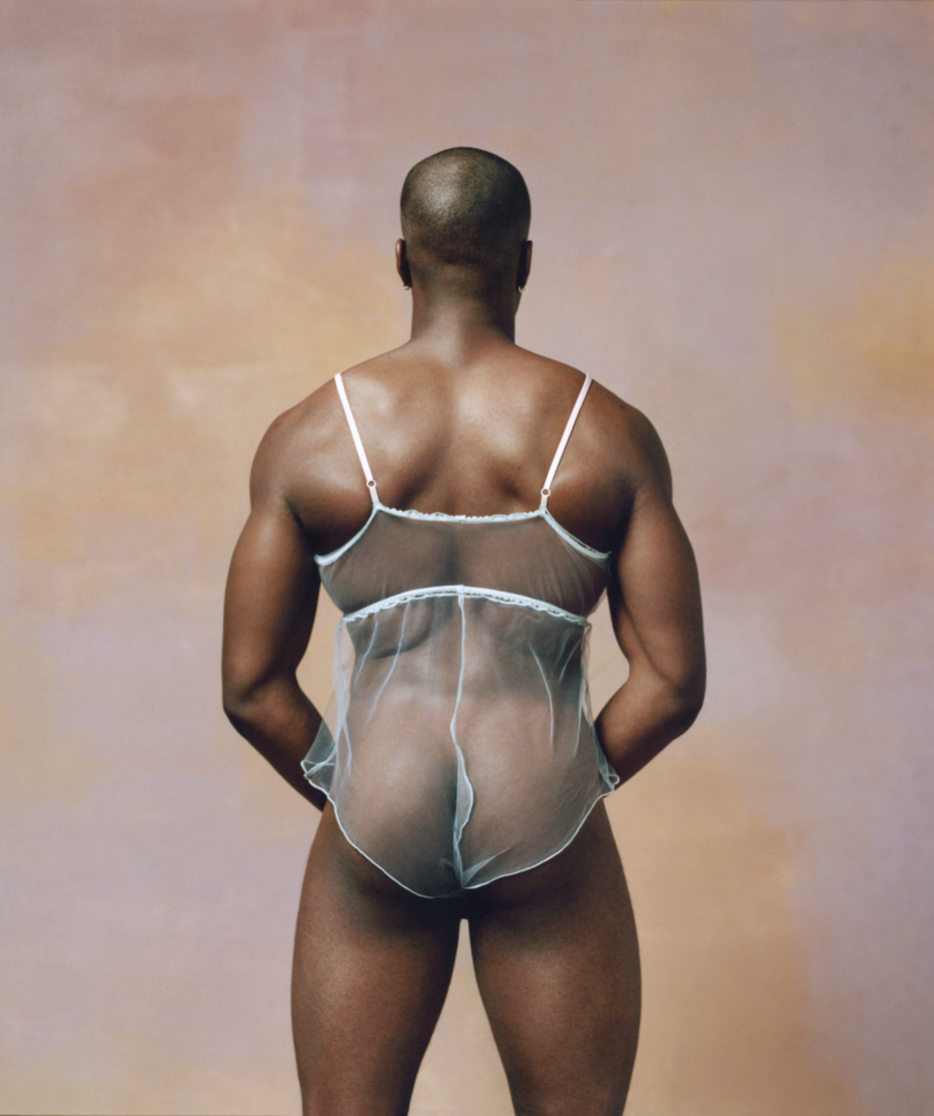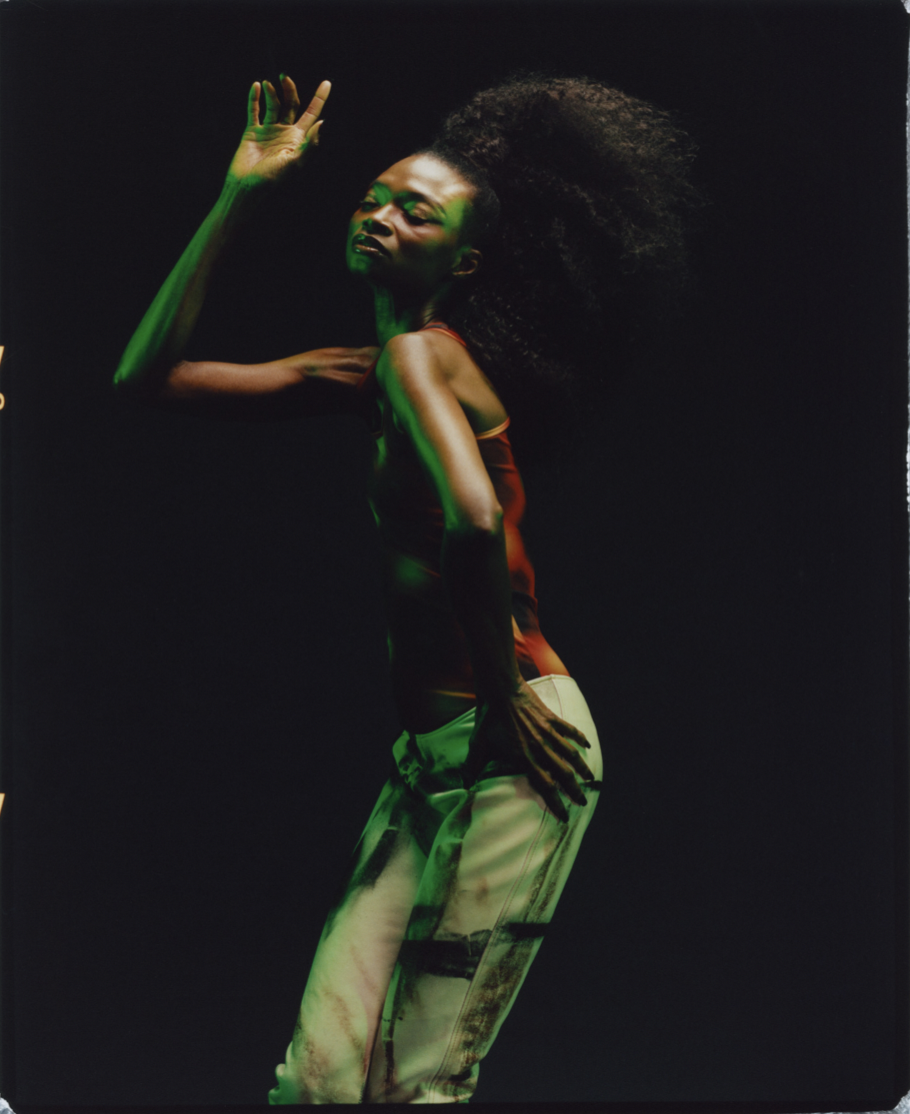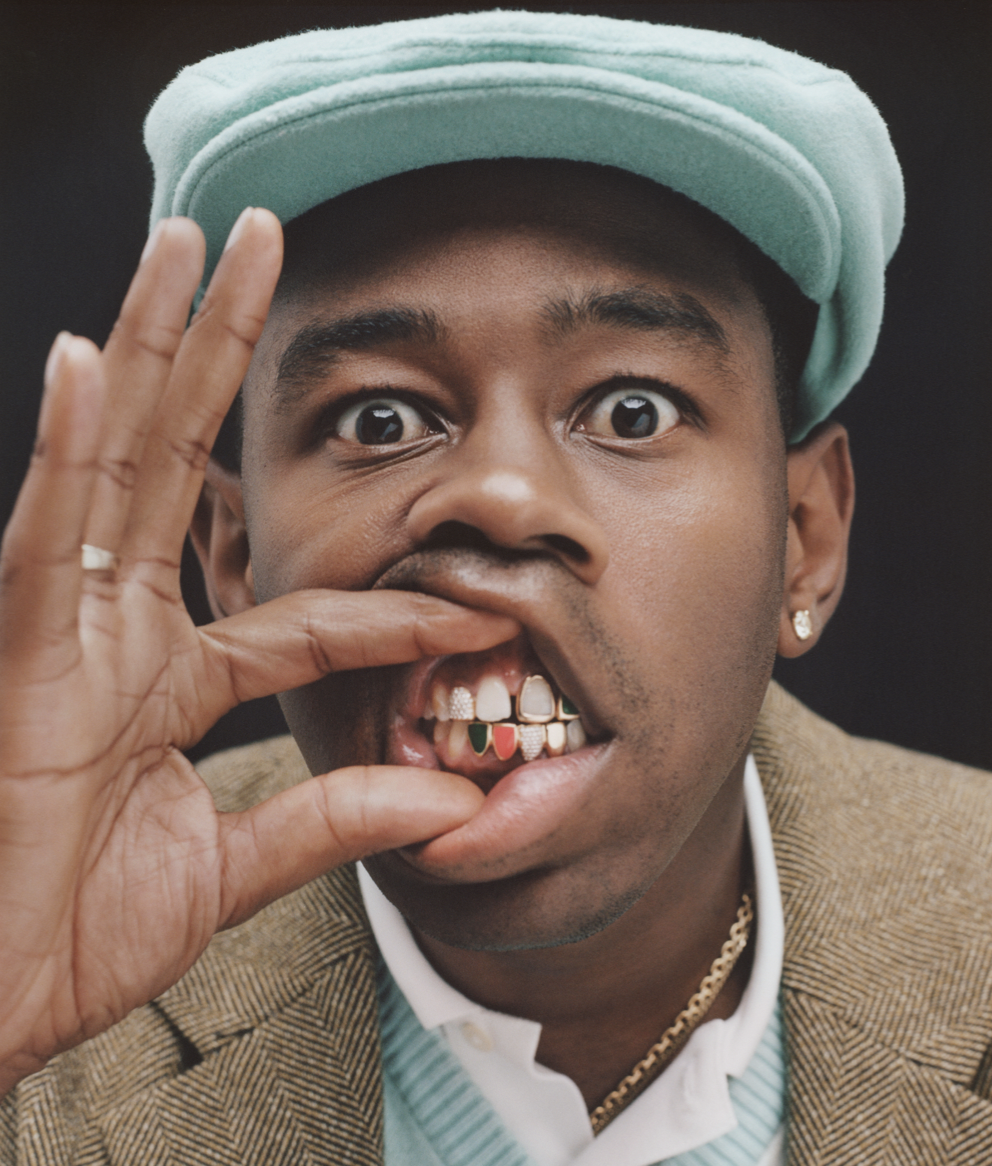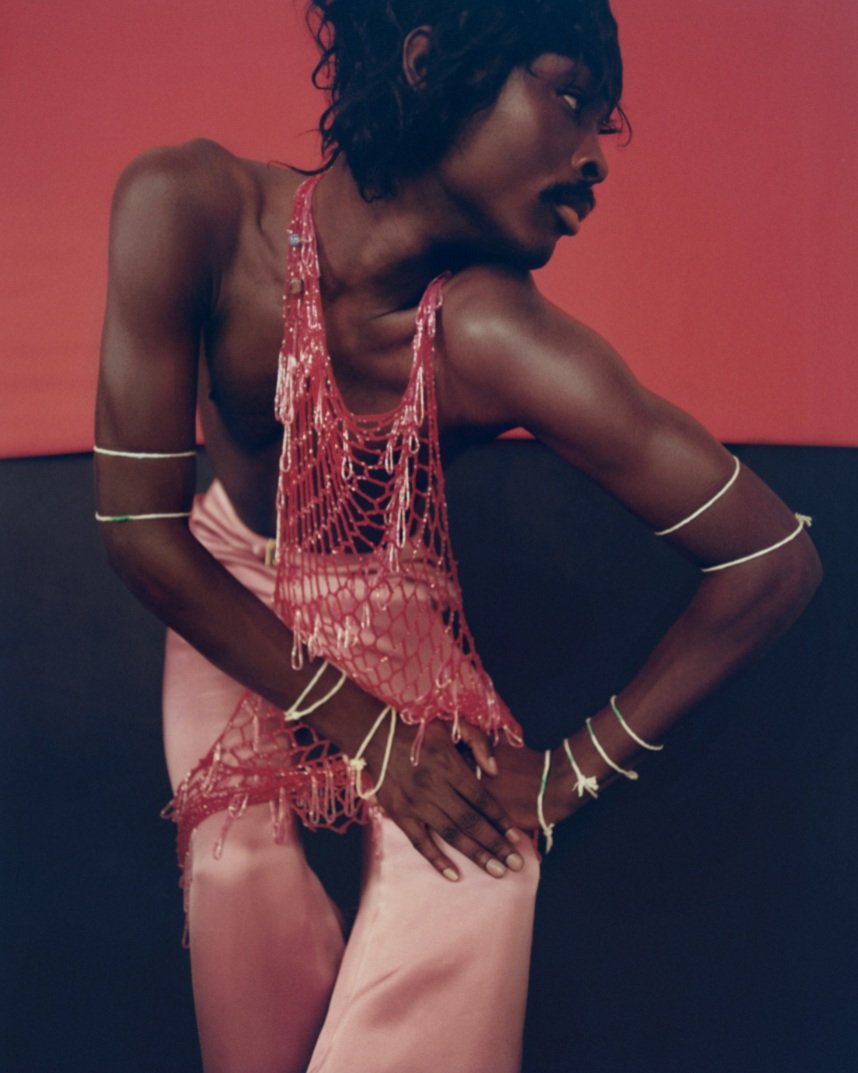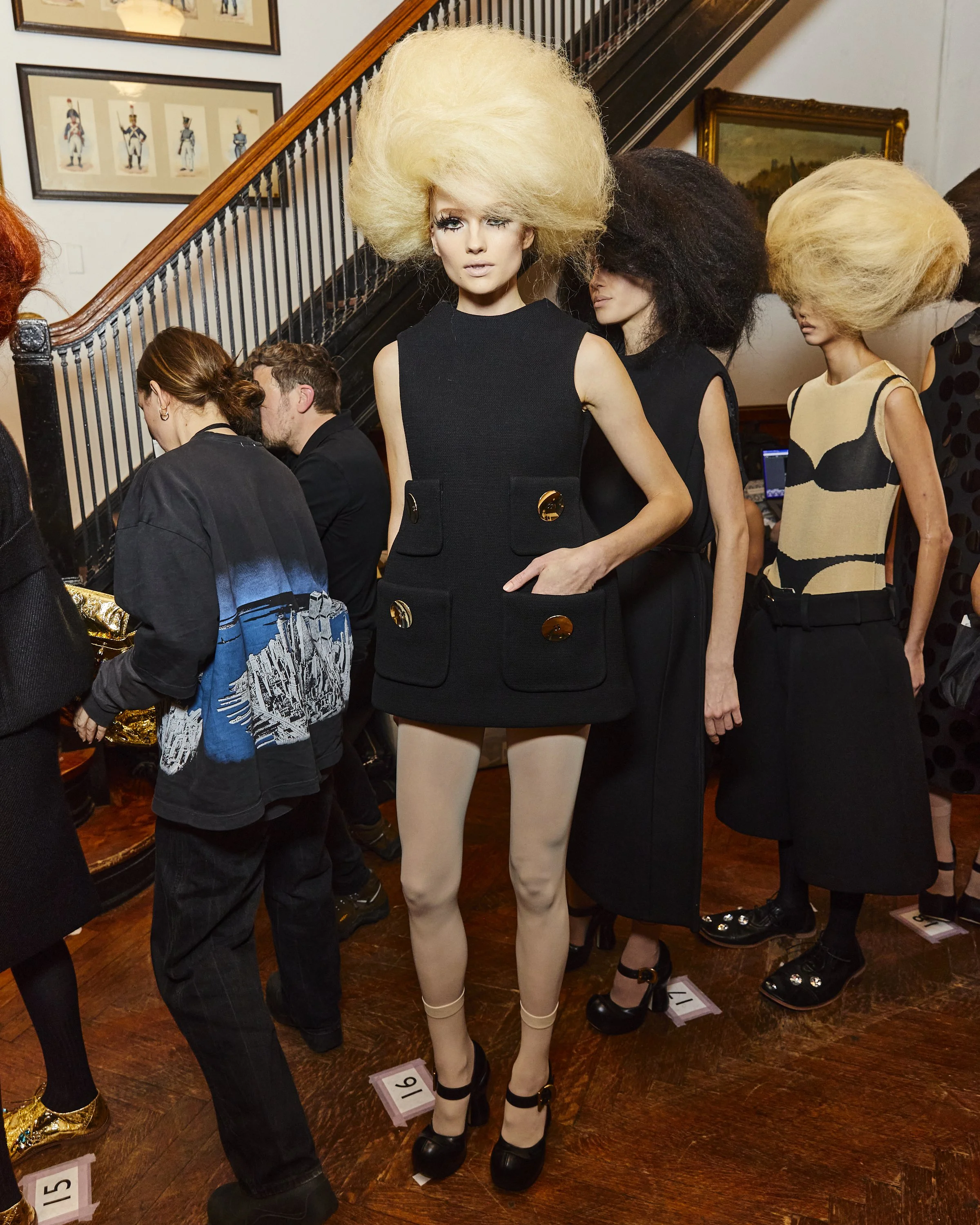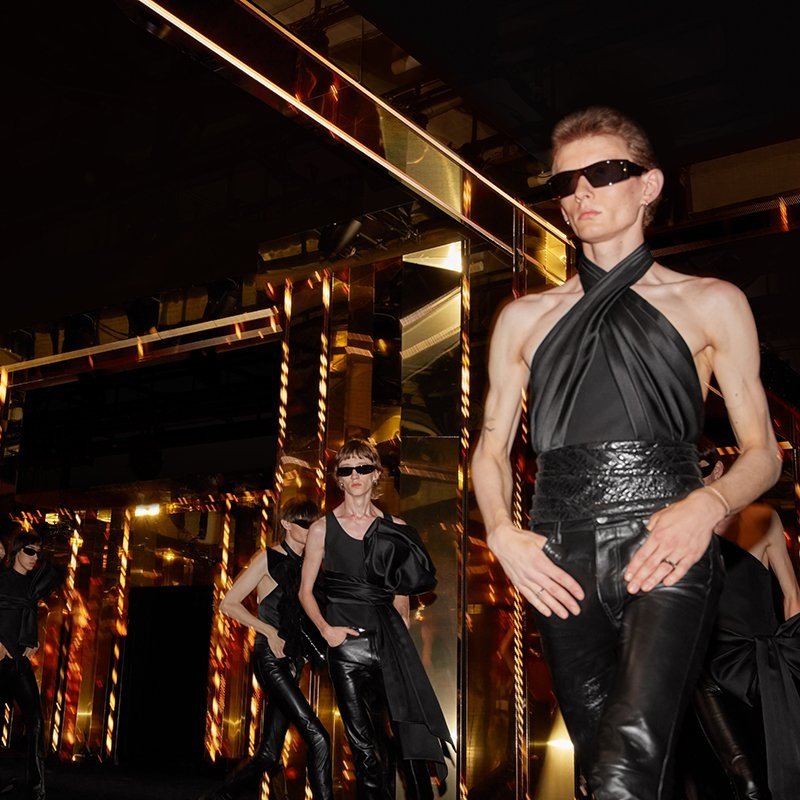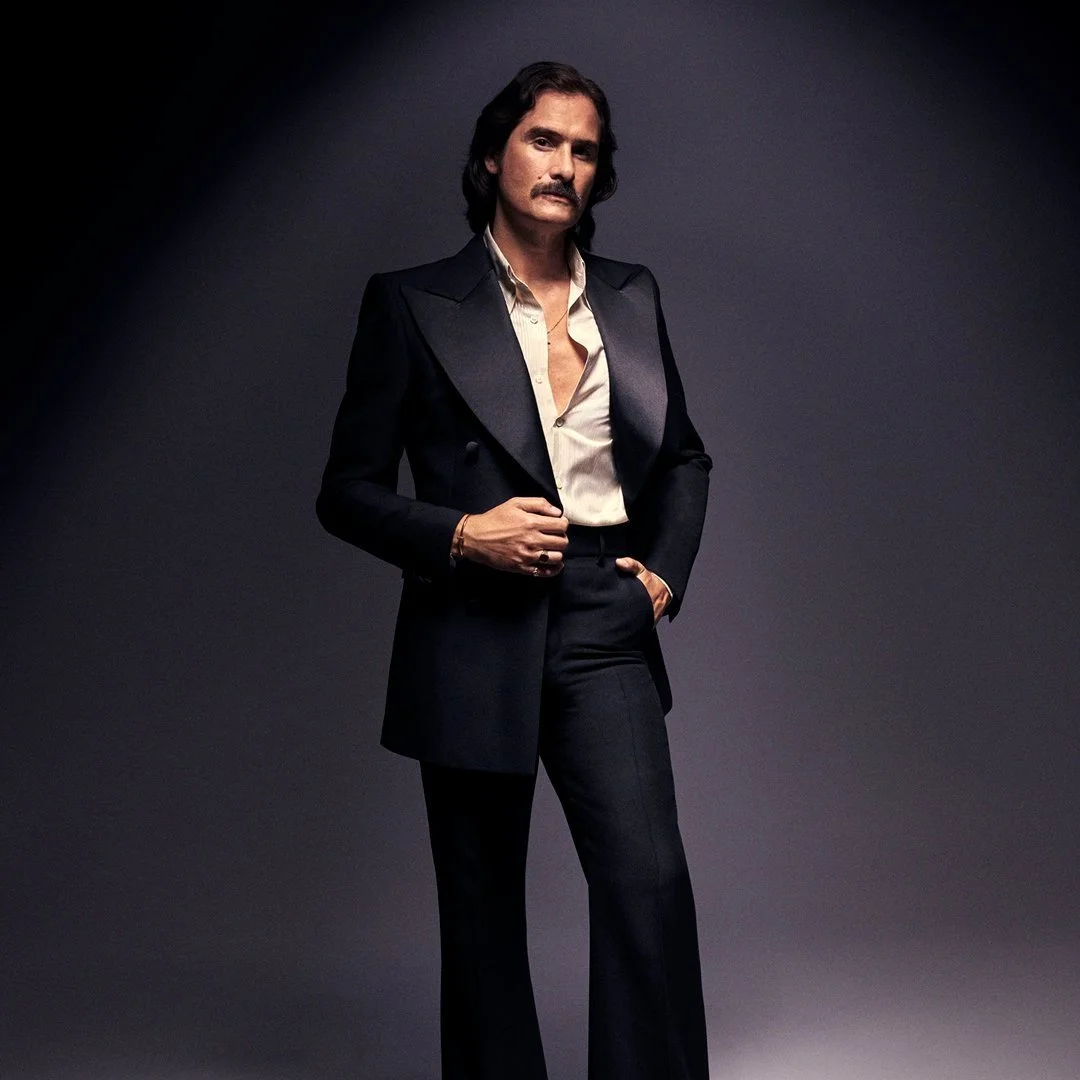Campbell Addy on Black visibility and representation, gatekeeping and his new book and exhibition ‘Feeling Seen’.
It’s a dog-eat-dog-world but when it comes to the fashion industry, you can forget dogs. Let’s replace them with sharks, dragons, even devils (they don’t all wear Prada). Photographer Campbell Addy could not be further from the fashion stereotype. We chat via Zoom earlier this week; he’s in South London with a jam-packed day full of interviews ahead in anticipation of his new exhibition following his book Feeling Seen.
Growing up in Croydon, Campbell admits there wasn’t really much going on. “We were always out. And if we weren't out, we'd be out in the fields. We'd go to the Glades in Bromley or go to the shopping centre ‘Centrale’. I also grew up very religious so I was always doing stuff with Jehovah's Witnesses so my time was very limited for recreational use but when we did, it was just, you know, poor young kids on the street, but we had fun. I would not change it.”
Campbell recalls some of his earliest memories of art made possible by the staple Y2K household item: the Argos catalogue, where he and his old brother - they’re two years apart - would take to the book with graphite and pretend that the colours on the pages were their palettes. “It was a cheap way to keep your kids occupied.” I ask if his religious upbringing encouraged creativity as a career path or whether he felt he had to suppress it. “It wasn't that I had to suppress it, but subconsciously I had to suppress the idea of it being a career because obviously you gave yourself up to God and you know your focus is on preaching good news in the kingdom. So the thought of being an artist is like that goes against - not that it's wrong - but it goes against what one is supposed to be doing. So it wasn't until I left home [at 16] that I thought oh, I could do something. I told myself oh, I can do anything now.”
Below, we discuss the importance of mentoring, Black visibility and representation, gatekeeping, what makes Campbell nervous and why his Feeling Seen exhibition and book is like nothing else he’s ever done or brought out before.
MeeMee White: You're very giving with your time and knowledge - you do interviews, you take part in mentoring programmes - why is it important to do these things?
Campbell Addy: Because it's important to foster culture forward and to change mindsets. So like with my book, I often think if I picked up a Black photographer's book, who was not near death, or old - no shade to old people , just people that weren’t so far away from my age - how my perception of self would have been at 16. If I didn't pick up Norman Parkinson, say I picked up a Campbell Addy book, they would have been like 'oh sick, he's doing it. He's only 10 years older than me', I probably would have been in a really different headspace. So I've always said that if I get in this space, I think I need mentorship still, you know? So it's, you know, as you know, I don't feel so precious about information. And I'm not afraid to share something for fear of losing it for myself, I think it benefits the greater consciousness and the greater powers if we're all giving and open and caring. And yeah, I work hard for what I do but that doesn't mean if I share it, or if I give information to someone else, that it will lose that graciousness. And I think a lot of my peers understand that because we know what it was like. Like we laugh now because with what we're doing it's not even that long since we were at uni and now we're doing all these things. My peers are my confidantes where it's like I hear stories of mentorships of old and young when I think Jack cool that would be you know, so I don't want to perpetuate that type of cycle if I'm going to be part of this industry.
MeeMee White: Niijournal is a publication you launched in 2016 and its message is: 'here to educate, not irritate.' You've now released Feeling Seen. What is it about books and print that you treasure?
Campbell Addy: I think, being a Jehovah's Witness, when we would get new publications coming to our congregation and I'd see some elders and some other people hold a book and smell it and really cherish the book. And for me, books were an outlet, or no, books were almost like an invitation into a fantasy world so that I could leave my own at times. So when I discovered art - I'd often go to galleries as a kid - and then when I discovered photo books, or just books that were just made to be beautiful, it was my own little secret at the time. And I think I remember it more than anything else I saw on a screen.
MeeMee White: How did you go about choosing the work that was shown for the book?
Campbell Addy: I've been building up from Niijournal, you know from designing it myself - like the first two I did it all myself. I just always had an interest in print. I had an idea of the physicality of my book subconsciously, I just didn't have the essence and then I just asked myself what have I been doing with the work that I've been doing. It's almost like reducing down this doc that is my work or what is left and it's just the essence of visibility from you know, wanting to be seen in front of my tutor in A Levels and then being good enough to get into Saint Martins, wanting to be seen at university as a Black person or just you know, pushing beauty ideals that to me weren't beauty ideals, they were just the people I see. So I had the idea and then I had to just compartmentalise what areas so then I could file it down. So I just simply gave it - and this goes back to being an editor of a magazine, I was like sections. So I went okay, cool. I need unreleased work, I need released work that people obviously understand and know of my work. And then I need a section that's for me without incorporating other things outside of just my photo taking. So that's writing, drawings, the Niijournal, paying homage to Ajamu and James [Barnor] you know, so I kind of have the structure already. And it was easy on that side.
MeeMee White: I really love in Feeling Seen how you've broken it up with a few written excerpts and interviews. It narrates it beautifully. Naomi Campbell wrote that when you photographed her for Vogue that it occurred to her that it was the first time that she'd been captured by a Black photographer for a mainstream publication.
Campbell Addy: Yeah, so the first Black photographer in her 33 year career. Yeah. Then what shocked me the most was when I asked specific people the question of when did you first have seen in industry and she said the year we all got awards at the Fashion Awards was the first time she felt seen and it broke my heart a little bit. To feel seen only then is very telling of the industry and also how hard she would have had to have worked, you know? So like you said it's bittersweet. But I think it was important to have that so people can understand. Because people look at what we do and think it's quite frivolous. And it's all about looking good but there's a heart to it, there's a real heart to what we do. And even the greatest supermodel of all time is still human at the end of the day. She's still a Black woman, regardless of what you guys may think of this industry, and I thought it was important that people can see the heart of what we're all trying to achieve.
MeeMeeWhite: Why does representation, in all aspects of the creative industry - not just in front of the camera but behind the camera, at the helm of brands, at the helm publications - why does that matter?
Campbell Addy: Ugh because it'd be better. I'm a very greedy person, like, if I can order six things on the menu and try them all, I will. Why? Because tasting and knowledge is growth, and it pushes things forward and cutting out a group of people because of signifiers like race or gender, or sexuality, is so boring. Like I'm not even mad anymore, I'm just like that's so boring and it's so naff because to get different perspectives on the same product, or the same thing, will evidently grow it, and in a business mind, you want to tap into new markets to grow a business. You know, this system is capitalistic as fuck, it's like come on, but then also like the joy. I love the unknown. I love being surprised with people's work, or I love seeing something and thinking I've never thought of that before, I've never seen those people before. It brings me joy to know that this little planet isn't so small. There's so much we can learn. So when it comes to visual media and the gatekeepers - I just can't understand why you wouldn't want other people to impact and enjoy and change, especially when you know they're doing anyway. It just doesn't make sense. You're stopping the inevitable in my opinion.
MeeMee White: With regards to awards, you have won your fair share now. You're also listed in the Forbes 30 under 30 list.
Campbell Addy: I know, that is WILD. I forget about that.
MeeMee White: I'm interested to know how relevant awards are, in your opinion, and if you think they matter and why.
Campbell Addy: It depends. To me, I wouldn't say they don't matter, I'm always grateful for any accolades that I may have received or will receive, but I have never thought I'm doing this to get an award or I want to get this award or just because, again, maybe it's my upbringing as a Jehovah's Witness. It's recognition by people who I think change the game or like really fuck with photography and storytelling or making, that for me will be the highest reward rather than receiving an award. Because if I receive an award, but then the people I genuinely look up to don't respect what I do, I think I'll be more sad about that. But then on the flip side, I think acknowledging people and giving them flowers for the impact that they have made is very important, especially within the Black community, because I feel as if we have impacted culture beyond our wildest dreams, yet we do not benefit from the success of it. Or things that we will often get penalised for and ridiculed for are now pop culture. And then accolades get given to others who adopted it. I think, personally, I do not aim for awards. I don't see myself like that, which is weird, even like when you brought it up I was like oh yeah I guess I have won awards but I would never say I'm an award-winning photographer, like that is so naff to me, but I think you have to really award people because still when you hear things like Will Smith is only the fifth [Black] man to win an [Academy] Award, I'm like really?! So you have to. I forget, right before Edward was at British Vogue, I didn't realise that there's only 2 covers where a single Black female was on the cover and it was 10 years apart. When you really sit there and think you're like, damn, so I think it's important for accolades to be given. But for me personally, I think the day I sit there and create something to be given an award, it will be so bad. It will be so bad.
MeeMee White: What elements do you look for in someone when deciding to work with them?
Campbell Addy: It depends on who they are. If it’s a model, it’s the Laws of Attraction isn’t it? It’s what makes your brain tick. I can focus on an anchor, or a small little part of someone, whether it’s their aura their energy, their teeth, their smile, how their voice sounds. Things that often people find odd but I’m like OK nom they’re fab, I want to work with them. But also I love people who come with ideas, whether it’s a model, a lighting tech, I love collaboration. And when it comes to team like hair, make-up, set, styling, I just want to be told off. I don’t want to be the headmaster of the shoot, I want them to be like yeah you thought of this, but this is better, you know? Not in an arrogant way. Like my assistant MC [Barnes] always says no one here wants you to fail so I take everyone’s suggestions as a stepping stone across the pond of success in a way, and it often works out! And I always go by instinct. I don’t like people who think the word impossible is real because everything is possible and if it’s not, make a way. If people already come with hesitancy, I’m like ugh I’m bored. Also, it’s important to have fun. It’s not that deep. Just have fun with it. I think the camera phone ruined things. I can’t imagine what it was like being on set without the camera phone because now, people get so nervous about doing things and I’m just like, you have to fail. You know that right? You have to fail to move things forward. Perfection doesn’t change anything. I’m ready to do a really bad shoot. I’m not precious. I used to be but I’m not anymore. I just think being precious doesn’t mean I’ll grow. We did a shoot recently and we started chucking gluten free flour around and as soon as we started chucking it around we realised that we hadn’t thought this through. All the kit’s getting flour in it but I was like ‘let’s do more!’. The images were fucking fab. But I also think that comes with confidence as well. At the beginning I was a bit more shy but now I’m just out. Fuck it.
MeeMee White: Does anything make you feel nervous?
Campbell Addy: Oh, everything. Can I create what I want to create? Will I reach my ceiling? It’s weird, I’ll create an idea, put the thing together - they trust me enough, right. They trust me more than me, and it’ll be the day before and I’ll be like oh my God, I’m going to let this person down. But then I’ll see myself on camera after I’ve been really shitting myself - excuse my French - and I look fucking fine! So I think I have a great poker face but RuPaul’s Drag Race has taught me a lot. I try and teach things like this is the centre stage, this is the main stage so just fake it and cry in the bathroom when no one’s looking type thing. But yeah, I get nervous on every shoot, big or small. The smaller ones I think I get more nervous on.
MeeMee White: When do you feel most fearless?
Campbell Addy: Playing video games actually.
MeeMee White: Are you a gamer?
Campbell Addy: I’m getting into it. I’m getting into it a little bit yeah. Some of my friends, like Nadine and Justine French, we all- it’s a good place to unwind. It’s anonymous in a way. Online I’m not doing pictures.
MeeMee White: Which games do you play?
Campbell Addy: I love Fortnight. I love Naruto, Tekken. I started It Takes Two with my partner a couple of months ago. Destiny. I feel fearless when I’m not doing photography. If I’m drawing a picture or painting.
It’s a drug. Being on set and looking through the lens. Getting the film back and seeing the image and you’re like ‘fab’. And it’s a tool for me to talk to people. I think with everything else I do, it’s very anonymous but with photography it’s very me. You’re looking at my thoughts so that’s why I get quite scared because I’m almost vulnerable when it comes to my work.
MeeMee White: I completely agree with what you said about being on set feeling like a drug. It breaks my heart knowing that we’re the small group of people knowing what it’s like to experience being on set. I wish you could just bottle it up for other people to experience because that build up, the adrenaline and then that moment-
Campbell Addy: I don’t think everyone could handle it though. My partner is a photographer but he’s a very different type of photographer and I feel like yeah he can handle anything, he’s robust, but you’ve got to love it. Does that make sense? There’s a certain type of photography that you don’t have to love but you can still go through with it. Like portraits of school children. But this, it’s problem solving, it’s therapy sometimes. It’s more than the actual photography itself. I often used to think oh I wish people could experience it but now I;m like you know what, go ahead. Have a day in my life and see how it’s like, and I;m not even the biggest thing on this planet. Like the bigger photographers, I can’t even imagine what it’s like for them. I remember searching for months of BTS footage from back in the day just so I could understand what a set was like. And I’ve been on many different people’s sets and I’m just like no man, this is not how I want my set to be. Because to me, it’s an art form. If I didn’t love it as much, certain people’s sets would have turned me off being a photographer. Not because they weren’t great, because they were different. Some people are very quiet. Like some people don’t talk to their subjects. Some people play really loud music. Some people don’t talk to their runners. I don’t know these people so I don’t judge them but I think every photographer creates the space and the energy for the shoot that they want to come to life.
MeeMee White: How do you like your set to be?
Campbell Addy: I always say to myself and the team ‘be the sunshine you want to see in the world.’ I want people to be nice, I want people to be kind. I don’t want people to be stressed out. I want people to have fun, like not everything’s work work work. Be attentive, be on it, but you can take a break. You can chat, you know? Me and my assistant made a game on set the other day - we had so much to do - but I was like my brain needs a detox and we were just flicking this broom into a hole. And we were like this is the shittiest game. I just want people to have fun. I remember working in retail, that wasn’t fun. I don’t want people to be like (gasp) ‘Campbell’s coming!’. I honestly just want to have fun. That’s all I want to do.
MeeMee White: Lastly, why should people get off TikTok and come to your exhibition/buy your book?
Campbell Addy: If you are a follower of my work and you’ve seen my work before, best believe you haven’t seen it properly. This is the first time I’ve had 100% control of how the format is. So this is truly my vision for my work. And it’s the first time I’ve exhibited my work on such a scale solo. And for people who don’t know my work, why should they get my book? I think it’s important to educate yourselves on different people around the world and their different ways that people can be seen. And to know that Black artists especially, we aren’t monoliths. So you may know me as a fashion photographer and have no interest in it, but you’ll get the book and find out I’ve written poetry, I’ve drawn things. Surprise yourself. Be interested in people other than what’s been put online. Lastly, I just think it’s a smashing book. Everyone can see themselves in the book. It’s a celebration. I think more people should see young, Black artists’ work in their vision because you’ll understand them better.
